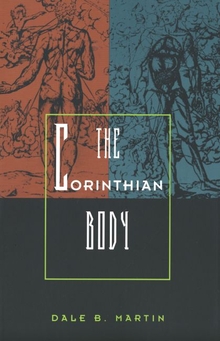Proclus
WARNING
You are viewing an older version of the Yalebooks website. Please visit out new website with more updated information and a better user experience: https://www.yalebooks.com
Neo-Platonic Philosophy and Science
Lucas Siorvanes
Proclus lived in the turbulent fifth century A.D., a time of struggles among Christians, Jews, and pagans, the invasion of Attila the Hun, the fall of the Western Roman Empire, and the rise of the Eastern Roman Empire in Byzantium. While Late Antiquity has been regarded as a time of superstition and forbiddingly complex philosophies, recent scholarship has shown it to be full of cultural and intellectual vigor. During Proclus's tenure as head of the Philosophy School, he systematized Neo-Platonism as the summit of ancient Greek thought, brought it to its peak of influence, and became responsible for the form in which it was transmitted to the Byzantine, Western European, and Islamic civilizations.
Siorvanes's extensive original research presents Proclus as much more than just a metaphysician. He surveys all of Proclus's philosophical interests—including religion, physics, astronomy, mathematics, and poetry—revealing the philosopher's central concern with the problems of being and knowledge and relating the ideas of Proclus to those of such other major thinkers as Plato, Aristotle, and Ptolemy. To help the newcomer, Siorvanes supplies more than 200 quotations from Proclus's works. He also traces the impact of Proclus's Neo-Platonism across cultures, religions, and centuries, in such diverse areas as Christian and Islamic theologies, Renaissance art, Kepler's astronomy, Romantic poetry, Emerson's thought, modern philosophy and science, and current popular phrases.
"Drawing on wide reading of Proclus's difficult treatises and scholastic commentaries on Plato, Siorvanes provides a clear and accessible exposition of Proclus's views; he helpfully includes many passages in translation. He shows that Proclus is not the arid scholar that he is often made out to be but rather an important thinker in his own right, whose ideas exercised wide influence through the Middle Ages, into the early modern era, and up to Hegel. Extensive notes and bibliography. Strongly recommended for all academic libraries."—Choice
"Students of later Greek philosophy will welcome this book. Its style is clear, but without concessions. It will remain an important book for a long time."—David Rankin, Times Higher Education Supplement
"Lucase Siorvanes' book, therefore, fills a gap in English-language studies, and it will unquestionably become the standard work on Proclus in English. It is an extremely thorough work…In short, this books is a reliable and clear introduction to all the main areas of Proclus’ intellectual world…what [Siorvanes] presents us with is of great value, and his book will be a point of reference on all matters Procline for decades."—Andrew Louth, Scotland Journal of Theology
"While this book forms an excellent introduction to Proclus, its value transcends that purpose. It is clear that Siorvanes has an intense personal interest in twentieth-century science and the history of science generally. The reader will discover fascinating speculations on ways in which Proclus anticipates such modern theories as quantum physics."—Frederic M. Schroeder, Religious Studies Review
"A most useful and welcome book, the first general study of Proclus in English since that of L.J. Rosan in 1949."—John Dillon, Ancient Philosophy
Publication Date: January 31, 1997








